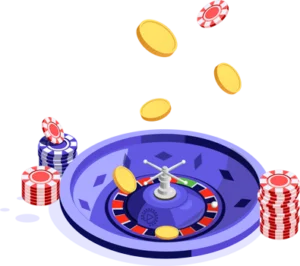Understanding Gambling Self-Exclusion in Ireland: A Guide for Responsible Gaming

Gambling can be an exciting and enjoyable activity for many people in Ireland, but for some, it can lead to problematic behaviors that affect their well-being. To combat the potential negative effects of gambling, Ireland has developed several measures to promote responsible gaming, with self-exclusion programs being one of the most significant tools available. In this blog, we’ll explore what gambling self-exclusion is, how it works, and why it’s an essential resource for Irish players looking to manage their gaming habits responsibly.
1. What is Gambling Self-Exclusion?
Self-exclusion is a formal process where an individual voluntarily requests to be excluded from gambling services for a certain period. During this time, the player is not allowed to access online or land-based casinos, betting shops, or other gambling venues. The goal of self-exclusion is to help players take control of their gambling behavior by limiting their ability to place bets, particularly if they feel that their gambling is becoming problematic. In Ireland, the option to self-exclude is available through various gambling operators, as well as via national schemes that cover multiple gambling platforms. This approach ensures that players who need a break from gambling can do so comprehensively.
2. Why Self-Exclusion is Important
For individuals struggling with gambling addiction or those who feel their gambling is getting out of control, self-exclusion offers a structured and effective solution. It allows players to take a break, reflect on their gambling habits, and seek help if necessary. Here are some reasons why self-exclusion is vital for responsible gambling:
- Gaining Control: Self-exclusion empowers individuals to regain control over their gambling habits, preventing impulsive or excessive gambling.
- Preventing Financial Losses: By opting to self-exclude, players can avoid further financial losses, which is often a key issue for problem gamblers.
- Focusing on Recovery: Self-exclusion creates a period where individuals can seek professional help, therapy, or counseling to address gambling-related issues without the temptation to gamble.
3. How Self-Exclusion Works in Ireland
In Ireland, self-exclusion can be initiated through individual operators or via the National Gambling Self-Exclusion Scheme, which covers both online and land-based services. The process is straightforward and confidential.
Here’s how it typically works:
- Step 1: Deciding to Self-Exclude A player first recognizes that gambling is becoming an issue and decides to take action. This decision is often triggered by a desire to reduce harm or seek help for gambling addiction.
- Step 2: Choosing the Duration Players can select the length of their self-exclusion period, which can range from six months to five years. Some platforms also allow for temporary self-exclusion, where players can take a short break to reset their habits.
- Step 3: Submitting the Request To start the self-exclusion process, players need to inform the gambling operator or use Ireland’s national scheme. For online platforms, the process is usually digital, with players filling out a form to confirm their decision. For in-person gambling, such as in betting shops or casinos, players may need to visit the establishment to sign up for self-exclusion.
- Step 4: Enforcement Once the self-exclusion is confirmed, the player is barred from accessing the gambling site or venue. In the case of online gambling, accounts are frozen, and any attempts to create new ones are blocked. For land-based gambling, players are refused entry to betting shops or casinos.
- Step 5: Reinstatement (if applicable) Once the self-exclusion period ends, the player must contact the operator to lift the restriction. Some players may choose to extend their exclusion period if they feel they’re still at risk.
4. The Role of Operators in Supporting Self-Exclusion
Gambling operators in Ireland are legally required to support responsible gambling measures, including self-exclusion. They must provide clear information on how to self-exclude and ensure that any self-exclusion requests are honored immediately. Additionally, operators are expected to offer players tools like deposit limits, time-out periods, and reality checks to help them manage their gambling behavior proactively.
5. Combining Self-Exclusion with Professional Support
While self-exclusion can be an effective tool for controlling gambling habits, it’s often most successful when combined with professional support. Counseling services, support groups, and addiction therapy are available in Ireland to help individuals understand the root causes of their gambling behavior and develop strategies for long-term recovery. Several organizations, such as Gamblers Anonymous Ireland and The Rutland Centre, offer specialized treatment programs for problem gamblers.
6. The Importance of Responsible Gambling
Responsible gambling is about ensuring that gambling remains a form of entertainment rather than a source of harm. In Ireland, operators and regulators work together to promote responsible gaming practices, and self-exclusion is a cornerstone of these efforts. Here are some additional tips for maintaining responsible gambling habits:
- Set Limits: Before gambling, set clear limits on how much time and money you’re willing to spend.
- Stay Informed: Educate yourself on the risks of gambling and the signs of problem gambling.
- Balance Gambling with Other Activities: Make sure gambling doesn’t become your primary form of entertainment. Engage in other hobbies and social activities to maintain a balanced lifestyle.
- Seek Help if Needed: If you feel your gambling is getting out of control, don’t hesitate to seek help from professionals or use self-exclusion tools.
Conclusion
Gambling self-exclusion in Ireland is a valuable tool for anyone looking to manage their gaming habits and practice responsible gambling. By taking advantage of self-exclusion programs and seeking support when needed, Irish players can ensure that their gambling experiences remain enjoyable and free from harm. If you or someone you know is struggling with gambling, self-exclusion can be the first step toward regaining control and making informed decisions about your gambling activities.
Most Recent News
Get the latest information







